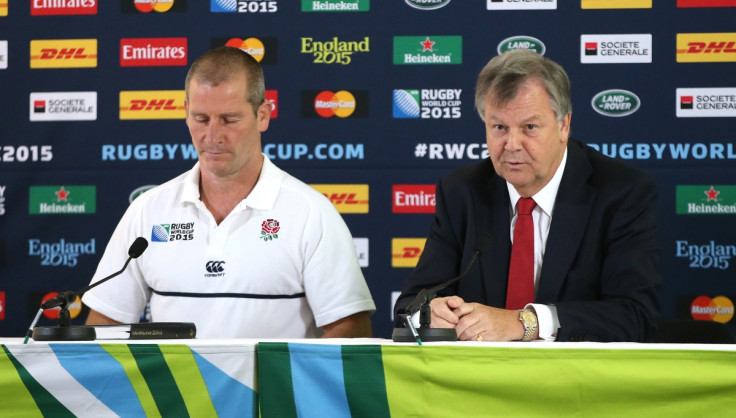Stephen Foster: England's Rugby World Cup woe shows why sport isn't just a matter of good business
Ian Ritchie is CEO of the Rugby Football Union (RFU); not the governing body of world rugby (that's the International Rugby Board – IRB) but the body that runs English rugby, the biggest and richest union in world rugby.
Ritchie, whose previous job was head of the All England Club, which runs Wimbledon, has by all accounts made the RFU a much more efficient and businesslike organisation, bringing millions into the game from corporate sponsors and others.

Unfortunately, he's now presiding over, arguably, the biggest disaster to hit England rugby: the failure of Stuart Lancaster's team to escape the Rugby World Cup group stage following their defeat by Australia.
Some 12 million people watched England being walloped by Australia on Saturday 3 October. Good news for broadcaster ITV. Unfortunately, not many will watch them play their last group game against Uruguay in Manchester. The stadium will be mostly empty, despite being officially sold out. Very bad news for ITV, as the company was expecting an autumn commercial windfall.
Companies including O2, Guinness, Jaguar Land Rover and Apple which have invested heavily in the tournament, expecting England to make it to the semi-finals at least, will be worrying about their marketing investment too. This isn't good news for the RFU either.
Prior to going to Wimbledon, Ritchie was a middle-ranking corporate executive, working at some media companies and headhunter Russell Reynolds. This is the usual background for most people running sports organisations these days. The new CEO of the Football Association is Martin Glenn, who used to run Walkers for Pepsico and Birds Eye for private equity. So a cut above Ritchie in the corporate stakes.
But Glenn is currently embarrassed by the FA's decision to clear Chelsea manager Jose Mourinho of alleged bad behaviour towards the club's female former doctor – pilloried by the Blues boss for doing her job. The FA's so-called "investigation" seems to have amounted to asking Mourinho what he thought and, er, that was it.
Consequences
In 2011, Ritchie and co appointed Stuart Lancaster as England's head coach, partly because he made a slick Powerpoint presentation stating his case. This is how middle-ranking corporate executives judge candidates. The fact that Lancaster had no top-level international coaching experience was overlooked.
Neither did they quibble when he brought in Andy Farrell as his number two, a giant of rugby league but someone whose experience of rugby union was less extensive. The consequences of this disastrous decision are now apparent but it doesn't look as though anyone at the RFU is about to move on. Lancaster may even keep his job.
But it shows sport and business can be like oil and water. There are times when they just don't mix. Agreeing things in a cosy board meeting is different to doing it on the pitch. Yet, somehow or other, the two factors – marketing people and performers – have to combine because corporate money fuels the world's biggest sporting, and therefore broadcast, events.
We've just seen Fifa president Sepp Blatter get his marching orders from sponsors Budweiser, Coca-Cola, McDonald's and Visa. Even they can't stand the reputational damage any longer.
But what such companies, including the ones who've poured money into the RFU in the belief that England would win the Rugby World Cup (never a realistic option, in truth), need to realise is that sport is gloriously unpredictable. Backing a supposed winner in the sporting stakes may look like a one-way bet to connect with millions of customers. As Ritchie and friends are realising, it ain't necessarily so.
Stephen Foster is editor of More About Advertising, a former editor of Marketing Week and a London Evening Standard advertising columnist. He wrote City Republic for Brand Republic and is a partner in communications consultancy The Editorial Partnership.
© Copyright IBTimes 2025. All rights reserved.






















